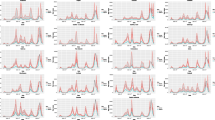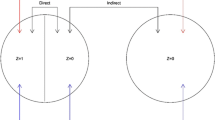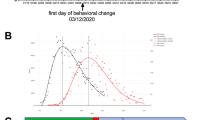Abstract
The Coronavirus SARS-CoV-2 (COVID-19) emerged by December 2019, in Wuhan, China; it was reported and, a few months after, in the most of countries we are living a pandemic of an (almost) unknown disease never observed before. For this reason, the importance of a good measurement on the counting of observed cases has a crucial role. This work addresses the time-lagged effect problem via Bayesian analysis supported by a stochastic discrete-event simulation to give an answer to the truthfulness of the data and to validate the obtained results in terms of proportions based on an expected result in the particular case of Spain. Obtained results show that the reported data is untruthful and can make wrong any analysis, but even when the simulating results are as we expected they might be wrong in terms of absolute numbers. However, the most important knowledge we get is related to the fact that the disease might be considered under control because it is more likely that a person gets recover than She/He dies.
The author is grateful for partial support from ANID Beca Magíster en el Extranjero, Becas Chile, Folio 73201112.
Access this chapter
Tax calculation will be finalised at checkout
Purchases are for personal use only
Similar content being viewed by others
References
Anastassopoulou, C., Russo, L., Tsakris, A., Siettos, C.: Data-based analysis, modelling and forecasting of the COVID-19 outbreak. PloS one 15(3), e0230405 (2020)
Backer, J.A., Klinkenberg, D., Wallinga, J.: Incubation period of 2019 novel coronavirus (2019-nCoV) infections among travellers from Wuhan, China, 20–28 January 2020. Euro. Surveill. 25(5), 2000062 (2020)
Fan, J., Liu, X., Pan, W., Douglas, M.W., Bao, S.: Epidemiology of 2019 novel coronavirus disease-19 in Gansu Province, China, 2020. Emerg. Infect. Dis. 26(6), 1257–1265 (2020)
Fanelli, D., Piazza, F.: Analysis and forecast of COVID-19 spreading in China, Italy and France. Chaos, Solitons Fractals 134, 109761 (2020)
How, C., et al.: The effectiveness of the quarantine of Wuhan city against the Corona Virus Disease 2019 (COVID-19): well-mixed SEIR model analysis. J. Med. Virol. 92(7), 841–848 (2020)
Instituto Nacional de Estadística: Cifras de Población (2020). https://www.ine.es/dyngs/INEbase/es/operacion.htm?c=Estadistica_C&cid=1254736176951&menu=ultiDatos&idp=1254735572981. Accessed 14 July 2020
Ioannidis, J.P.: A fiasco in the making? As the coronavirus pandemic takes hold, we are making decisions without reliable data. Stat 17 (2020)
Johns Hopkins University: COVID-19 Data Repository by the Center for Systems Science and Engineering (CSSE) at Johns Hopkins University (2020). https://github.com/CSSEGISandData/COVID-19/tree/master/csse_covid_19_data/csse_covid_19_time_series. Accessed 3 May 2020
Jung, S.M., et al.: Real-time estimation of the risk of death from novel coronavirus (COVID-19) infection: inference using exported cases. J. Clin. Med. 9(2), 523 (2020)
Kirkcaldy, R.D., King, B.A., Brooks, J.T.: COVID-19 and postinfection immunity: limited evidence, many remaining questions. Jama 323(22), 2245–2246 (2020)
Lai, C.C., Shih, T.P., Ko, W.C., Tang, H.J., Hsueh, P.R.: Severe acute respiratory syndrome coronavirus 2 (SARS-CoV-2) and corona virus disease-2019 (COVID-19): the epidemic and the challenges. J. Antimicrob. Agents 55(3), 105924 (2020)
Ota, M.: Will we see protection or reinfection in COVID-19? Nat. Rev. Immunol. 20(6), 351 (2020)
Prem, K., et al.: The effect of control strategies to reduce social mixing on outcomes of the COVID-19 epidemic in Wuhan, China: a modelling study. The Lancet Public Health 5(5), 261–270 (2020)
Read, J.M., Bridgen, J.R., Cummings, D.A., Ho, A., Jewell, C.P.: Novel coronavirus 2019-nCoV: early estimation of epidemiological parameters and epidemic predictions. MedRxiv (2020)
Riou, J., Althaus, C.L.: Pattern of early human-to-human transmission of Wuhan 2019 novel coronavirus (2019-nCoV), December 2019 to January 2020. Euro. Surveill. 25(4), 2000058 (2020)
Shen, M., Peng, Z., Xiao, Y., Zhang, L.: Modelling the epidemic trend of the 2019 novel coronavirus outbreak in China. Innov. 1(3), 100048 (2020)
Singhal, T.: A review of coronavirus disease-2019 (COVID-19). Indian J. Pediatr. 87(4), 281–286 (2020)
Song, F., et al.: Emerging 2019 novel coronavirus (2019-nCoV) pneumonia. Radiol. 295(1), 210–217 (2020)
Stan Development Team: RStan: the R interface to Stan, r package version 2.19.3 (2020). http://mc-stan.org/
Velavan, T.P., Meyer, C.G.: The COVID-19 epidemic. Trop. Med. Int. Health 25(3), 278 (2020)
World Health Organization: Coronavirus disease (COVID-2019) situation reports (2020). https://www.who.int/emergencies/diseases/novel-coronavirus-2019/situation-reports/. Accessed 22 May 2020
Wu, J.T., et al.: Estimating clinical severity of COVID-19 from the transmission dynamics in Wuhan, China. Nat. Med. 26(4), 506–510 (2020)
Yi, Y., Lagniton, P.N., Ye, S., Li, E., Xu, R.H.: COVID-19: what has been learned and to be learned about the novel coronavirus disease. Int. J. Biol. Sci. 16(10), 1753 (2020)
Zhao, S., et al.: Estimating the unreported number of novel coronavirus (2019-nCoV) cases in china in the first half of January 2020: a data-driven modelling analysis of the early outbreak. J. Clin. Med. 9(2), 388 (2020)
Zhao, S., Chen, H.: Modeling the epidemic dynamics and control of COVID-19 outbreak in China. Quant. Biol. 8(1), 11–19 (2020). https://doi.org/10.1007/s40484-020-0199-0
Zhi, Z.L.X.B.X.Z.: The epidemiological characteristics of an outbreak of 2019 novel coronavirus diseases (COVID-19) in China. Novel, Coronavirus Pneumonia Emergency Response Epidemiology and others 41(2), 145 (2020)
Author information
Authors and Affiliations
Corresponding author
Editor information
Editors and Affiliations
Rights and permissions
Copyright information
© 2021 Springer Nature Switzerland AG
About this paper
Cite this paper
Rojo-González, L. (2021). The Time-Lagged Effect Problem on (Un)truthful Data, a Case Study on COVID-19 Outbreak. In: Rossit, D.A., Tohmé, F., Mejía Delgadillo, G. (eds) Production Research. ICPR-Americas 2020. Communications in Computer and Information Science, vol 1408. Springer, Cham. https://doi.org/10.1007/978-3-030-76310-7_23
Download citation
DOI: https://doi.org/10.1007/978-3-030-76310-7_23
Published:
Publisher Name: Springer, Cham
Print ISBN: 978-3-030-76309-1
Online ISBN: 978-3-030-76310-7
eBook Packages: Computer ScienceComputer Science (R0)




